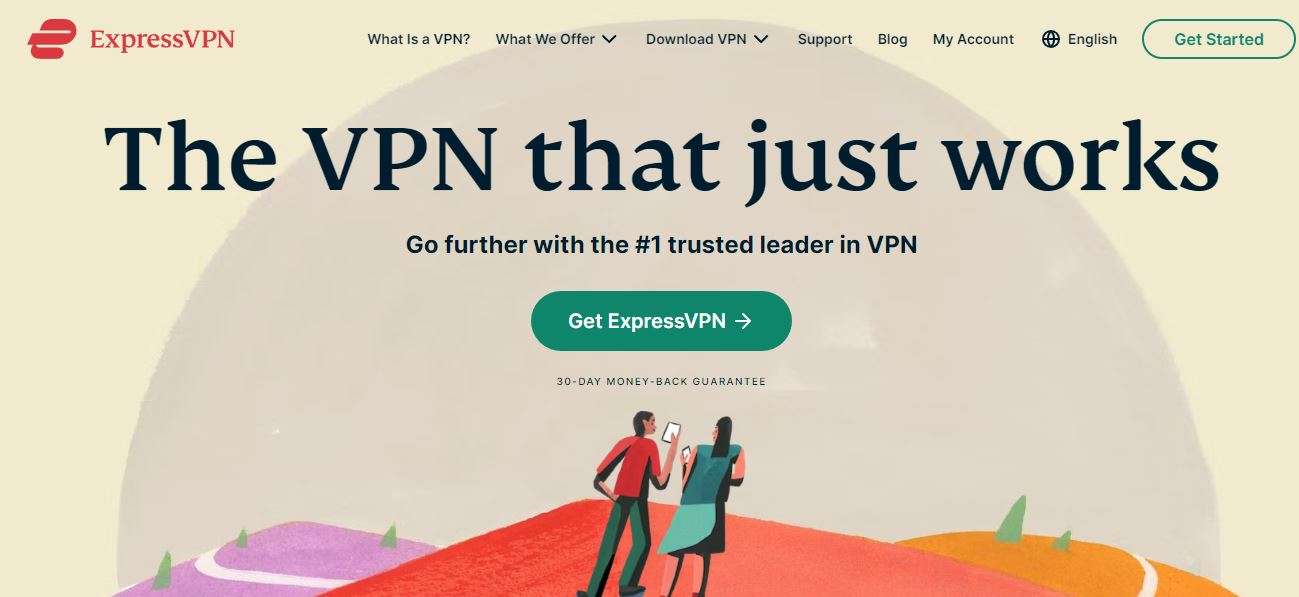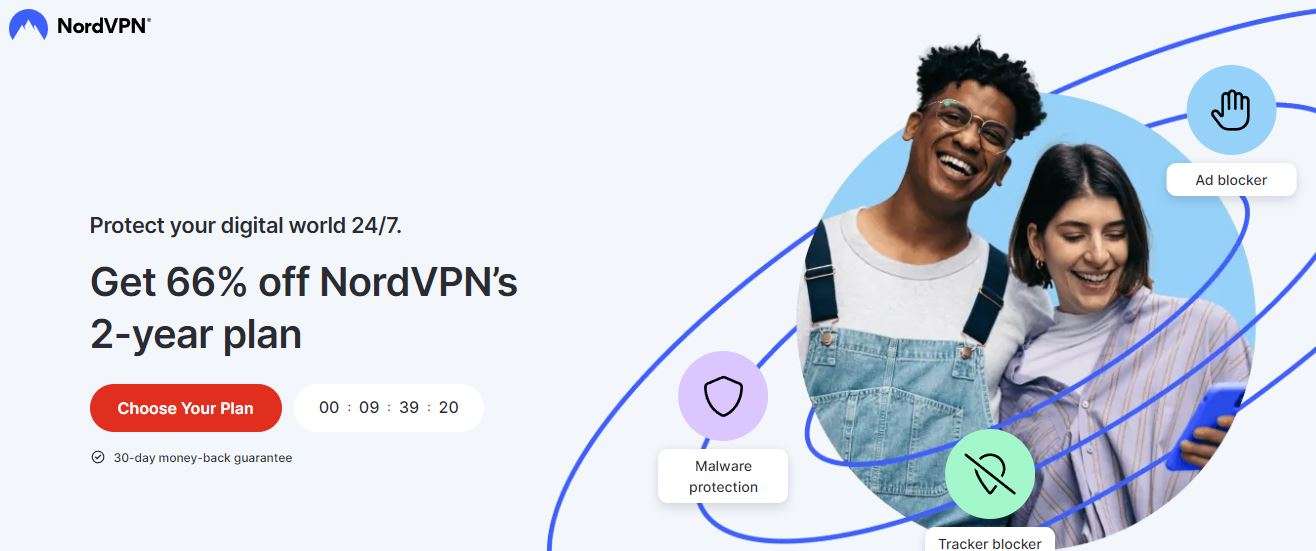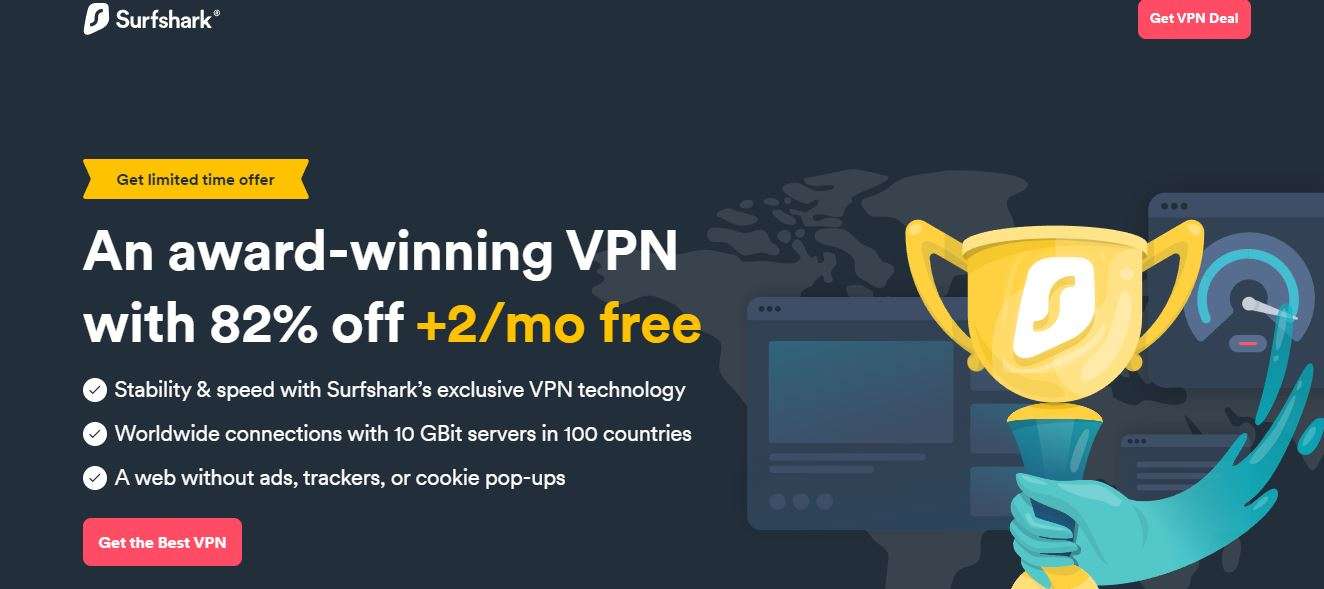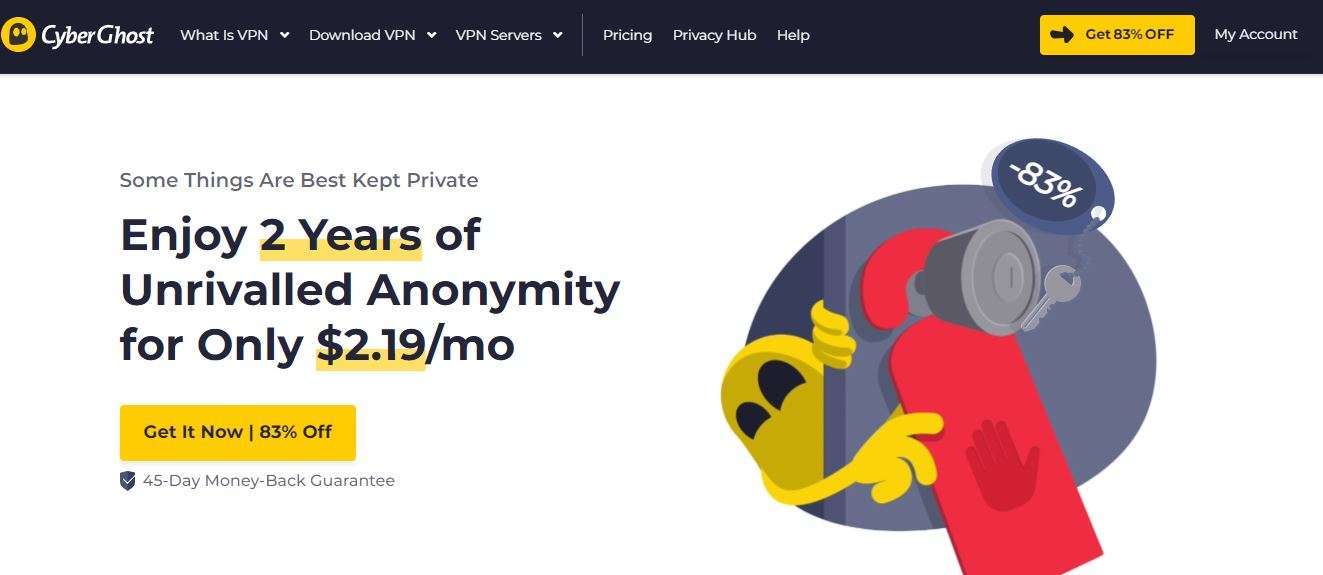
This way, your real IP address is kept hidden, and you can stay anonymous online. VPNs find applications in enhancing online privacy, circumventing geographical content restrictions, and safeguarding data when using public Wi-Fi networks.
Here are five highly acclaimed VPN services in 2023:

Image Credit: Express VPN
Renowned for its speed and dependability, Express VPN offers an extensive array of servers across multiple countries. It combines robust encryption with a user-friendly interface, accommodating various platforms to cater to diverse needs.

Image Credit: NordVPN
Standing out as a top choice, NordVPN boasts advanced security features and an extensive server network. It employs double-encryption for enhanced protection and provides dedicated IP addresses. Additionally, its built-in CyberSec feature shields against advertisements and malware.

Image Credit: Surfshark
Offering a cost-effective solution, Surfshark provides a plethora of security features. It allows unlimited simultaneous connections, making it suitable for multiple users. Alongside robust encryption, it includes an ad blocker and malware scanner.

Image Credit: CyberGhost
Recognized for its user-friendly approach, CyberGhost offers a wide range of servers worldwide. It employs strong encryption and features dedicated streaming servers for avid media consumers. It also offers a privacy-oriented feature called “NoSpy” servers.
PIA prioritizes user privacy and maintains an extensive server network. Its foundation lies in robust encryption, ensuring data protection.
These VPN services excel in different aspects, providing secure and versatile options for individuals seeking online privacy, content accessibility, and data security.
If you are learning digital marketing and want to know them, please feel free to check best digital marketing tools in our new article.
One of the primary advantages of using a VPN is that it offers enhanced online security by encrypting internet traffic, making it difficult for unauthorized access..
Ensuring privacy is a fundamental cornerstone of VPNs. These invaluable tools empower users to shield their online activities from potential threats like ISPs, governmental entities, and other prying organizations that scrutinize digital behavior. By harnessing the capabilities of a VPN, you can cloak your actual IP address, seamlessly swapping it with the IP of the VPN server.
This smart maneuver significantly complicates any attempts to associate your online actions with your physical whereabouts and personal identity. Consequently, you gain the ability to traverse the web incognito, carving out a secure space for anonymous browsing and safeguarding your precious privacy in the process.
The digital landscape faces geolocation restrictions, but VPNs offer a solution to overcome these barriers by enabling users to access content securely and efficiently.
VPN enables users to connect to servers in different regions or countries, transforming their online presence and presenting the illusion of perusing the internet from that location.
A VPN offers region-locked content, bypassing censorship and transforming the internet into a boundless expanse free from geographical constraints. It allows users to access information and knowledge from around the world, transforming the internet into a free and open space.
VPNs are crucial for businesses and organizations, ensuring secure access to internal networks for remote work and protecting sensitive data and files.
VPNs ensure that remote workers can connect to the company’s network with encryption, protecting the confidentiality and integrity of the transmitted data.
VPNs are essential tools for torrenting and file-sharing, but they can also pose legal risks due to copyrighted material sharing. VPNs protect users’ IP addresses, making online activities enigmas and avoiding legal repercussions.
VPNs offer numerous benefits, including improved download speeds and overcoming internet throttling by ISPs. These techniques enable faster, more secure file-sharing experiences, boosting technology enthusiasts’ aspirations.
Thus, VPNs offer a captivating realm of complexity and diversity, allowing us to explore language’s tapestry, showcasing perplexity and burstiness in a captivating dance.
Just like the importance of VPN please find out the importance of ChatGPT from this article.
VPN usage is legal globally for online security and privacy protection but may vary based on country regulations. Certain nations may impose restrictions on VPN usage or have specific laws that govern their utilization, particularly in regions where VPNs are perceived as tools to bypass government censorship or facilitate unlawful activities.
So, it’s always prudent to stay informed about the local regulations pertaining to VPNs before employing them in such areas.
VPNs can affect internet speed by encrypting and rerouting data, affecting the speed of connections. Factors like geographical location and server location affect the impact. Choose a reputable VPN provider with well-performing servers for a smoother, more reliable online experience.
Virtual private networks (VPNs) create encrypted tunnels between devices and remote servers, ensuring online data is routed through these tunnels. These technologies revolutionize online privacy and security by encrypting data and concealing IP addresses.
VPNs protect users from cyber threats and surveillance, enabling them to navigate the digital realm confidently. VPNs are accessible to users of all technical expertise, making them a valuable tool for safeguarding online presence in the ever-evolving digital landscape.
So if you were looking for the answer to What is VPN? We hope you get a satisfactory answer.
VPNs provide enhanced security, privacy, remote access, and anonymity for online activity, protecting critical information and privacy in today’s connected world.
Feature Image Credit: Instagram